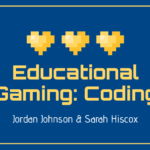Tracy Humphreys is the founder and chair of BCEd access society, an entirely volunteer run organization serving families of students whom have disabilities or complex learning needs. She created this organization when she experienced a lack of supports for her 3 children (all of which have complex needs).
BCEd access has become a huge collective of over 3500 volunteers, serving students and their families, all across B.C. Their purpose is to provide parents with information about their rights, their children’s rights, and how to advocate within the system to access those rights. BCEd access works with: the Minister of Education, media, teachers and schools within B.C. They run social groups for children (inclusively run by facilitators) and help families to advocate for themselves.
Tracy described BCEd Access’s strength as the fact that it is not just one person–it is thousands of volunteers across the province that are passionate about taking action-they want to see systemic change, improvements in our future and create a place where all students are provided equitable access to education.
Issues for Students and Parents Requiring Access to Education
Technology is a huge component for many students who have complex needs. Here is a list of a few of the barriers, related to technology, that many families face when seeking accessible education.
- Denial of technology -Many classrooms insist on verbal output or written communication, which does not work for many learners.
- Slow technology-Many of the technologies at schools/homes are outdated and not suitable for educational requirements.
- Access to technology-Many families do not have computers or the technology required for home learning support (a much larger issue since the pandemic).
- There is no central keeper of tech in schools-can make it inaccessible to receive support
- No support for parents on how to use the technology.
- Money-Educational supports can be costly and is an issue for many families.
How Can We Be More Inclusive in Our Teaching Practice?
- It is important that we talk about identity and representation-We all bring different things to the table that shares our perspective-representation is important. Children need to see people who reflect who they are. Who is here that we can’t tell by looking? We cant make assumptions about peoples identities. Always practice respect and mindfulness.
- Educate ourselves-There is a complaints process in each school district and the process starts with the teacher. It is important that we have the foundational knowledge to incorporate supports in the classroom and advocate for our students.
- Adapt and modify our teaching as necessary-This also requires us to form relationships with our students and taking the time to get to know their unique learning styles. It is also important that we ensure every activity we do is accessible and equitable for all (ie. field trips).
- Communicate!-This is so important. As teachers we need to communicate with the students’, their parents/families, and other supports in the schools, and community (like BCEd access!) Many of these conversations can be challenging but are worth it.
- Signal that your classroom is an inclusive space-Use anchor charts, share your pronouns, teach children about diversity and inclusion, Indigenous ways of learning, SOGI 123, Anti-racism and disabilities.
I really appreciated Tracy coming to speak to our class today. As future educators, it is really important that we develop a deep understanding of the many complex needs that our students will have, the barriers that they (and their families) face and the adequate supports that are required for everyone to achieve equitable education.
Here is a comprehensive list of assistive technologies that my EdTech prof created that I will definitely be referring back to later.





